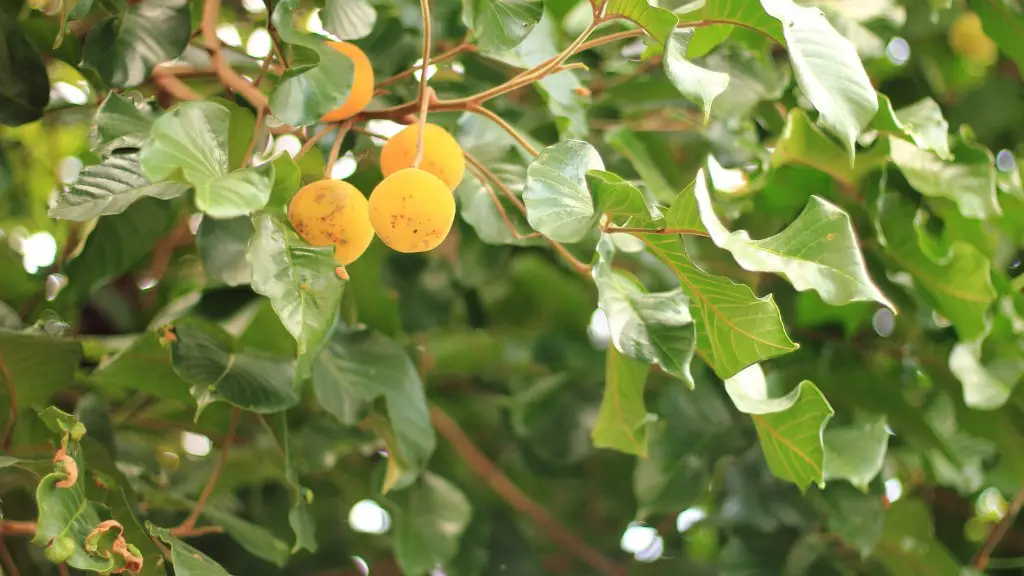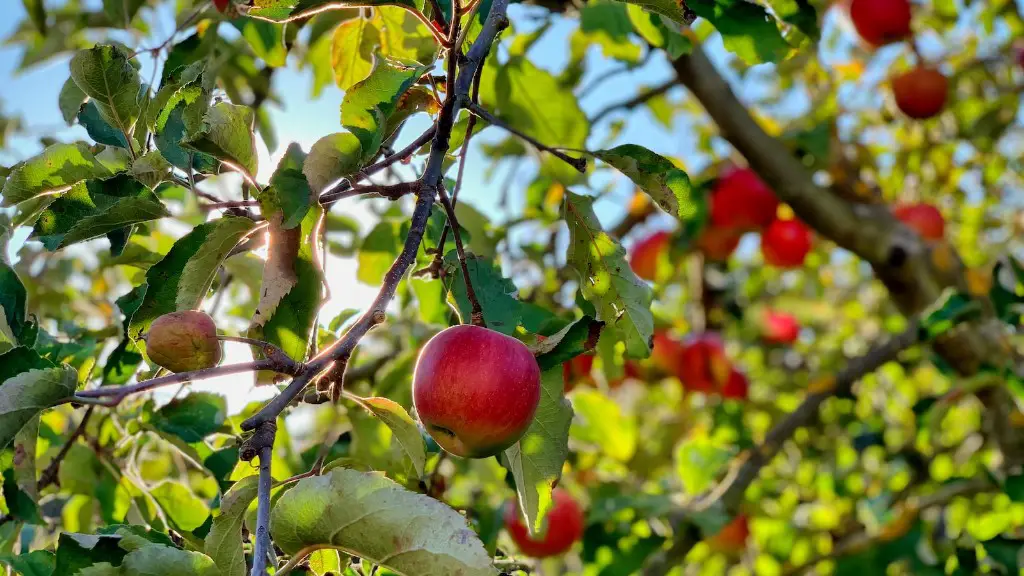Do you want to learn how to pick lemons off a tree? Picking lemons is easy when you know how to do it. First, you need to select a well-sized and ripe lemon. To determine if a lemon is ripe, you should check its skin color: lemons should be yellow and slightly soft to the touch. It is also important to not forget gloves: gloves are very effective in protecting your hands from the thorns on the branches of the lemon tree.
Next, you should position yourself correctly in front of the tree. You should make sure that you stand closer to the trunk so that you have a good balance when you reach for the fruit. Once you’re ready, use both your hands to grab the lemon. Gently twist the lemon several times, then pull it off the branch. If it doesn’t come off easily, wait a few more days for it to ripen.
Lemons can also be picked using garden shears or a picking pole. Use the shears to snip off the stems of the lemons, or use the picking pole to grasp them or loosen the stems until you are able to pull them off. Note that some specific lemon varieties are more suitable for picking with garden shears.
Once the lemons have been harvested, store them in an air-tight container to maintain freshness. Additionally, you can store them in the fridge if you don’t plan on using them right away. Lastly, always wash the lemons before you use them and be sure to discard any damaged ones.
Using a Ladder to Pick Lemons
If the lemon tree is too tall, use a sturdy ladder to safely reach the top branches. Always remain secure when picking lemons from a height. Before you climb the ladder, check for any broken rungs or loose parts, and make sure that the ladder is firmly placed. Additionally, a ladder should never be used in wet or rainy conditions.
Once the ladder is in position, make sure that your feet are secure on the rungs and that your hands are correctly gripping the rails. After you take the time to inspect the lemons, you can carefully pick them. You may also find it easier to tie the stem off with twine and loosen the lemon before gently pulling it off the branch.
When picking lemons from a ladder, always remember to be cautious and use common sense. It is also important to pick only healthy, ripe lemons so that they can be used immediately or stored away. Lastly, never try to overextend your reach while standing on a ladder.
Picking Lemons from Your Garden
If you have a lemon tree in your garden, you are most likely familiar with the timescale for when the fruit will ripen. At times, you may find yourself needing to pick some lemons, but the tree is still full of green, unripe fruit. Here, you can use a ripening process in which you select a few green lemons and store them twist-tied in a paper bag at room temperature until they are slightly soft, which usually happens within one week.
In addition, once the fruit is ripe, always make sure to check it for any abnormalities such as molds and blemishes. Any such imperfections indicate that the lemon has probably been overripe. Furthermore, make sure that the stem of the lemon is intact before you pull it off. This will help ensure that the lemon was harvested at its natural ripeness.
If you have a large batch of lemons to pick, it is best to have someone to help you so that you can both be working together to pick them: one person to select the lemons, and the other person to take the ones that are ready so that the first person can concentrate on selecting the rest.
Finally, if your lemon tree is quite unruly, make sure to prune it regularly to keep its shape and structure. This will also help with pest control and better aeration of the branches.
Benefits of Picking Lemons
Picking lemons off the tree offers an abundance of benefits. For starters, freshly-picked lemons can be juiced to make a variety of beverages that are great for digestion and can help improve one’s overall health. Lemons can also be used to cook a variety of dishes that are loaded with nutrients and vitamins, such as salads and marinades.
Furthermore, squeezing a few drops of fresh lemon juice onto vegetables and fruits can prevent discoloration due to oxidation and help preserve them longer. Lemons are also great for non-culinary purposes such as cleaning products and making homemade furniture polish.
Additionally, the lemon peel can be used to make tea or used as a decorative infusion for scones and cakes. Lemons can also be dried and used as a flavoring agent in various recipes; they can also be used to add zest to plain water. Lastly, unused lemons can be added to homemade jams, chutneys, and sauces.
Pest Control
Picking lemons off the tree doesn’t just provide a plethora of culinary and health benefits, but it can also be used to control pests as well. Harvesting lemons on a regular basis can protect your lemon trees from a multitude of pests such as spider mites and mealybugs. These pests can damage the leaves of the tree and hinder the growth of your lemons, so removing them periodically is very important.
Moreover, injecting a few drops of lemon juice extracted from freshly-picked lemons into affected areas of the tree can also help deter pests from attacking the plant. Additionally, applying crushed lemon peels over the affected areas can provide an additional layer of protection.
If you notice any discoloration or abnormal patches on your lemon tree, it is best to isolate the infected areas and treat them with hydrated lime, beneficial insects, and beneficial microorganisms. Minimizing the spread of pests and diseases is essential in preserving the health and productivity of lemon trees.
Storing Lemons
It is important to store harvested lemons in a cool, dry area with plenty of air circulation. Lemons are highly perishable and can easily spoil, so they should always be refrigerated or stored in a cool dry place with temperatures below 18°C and away from direct sunlight.
Keeping a large batch of lemons in a single bag can cause them to rot, so it is best to store them in individual bags or containers for better preservation. Proper storage methods can help keep lemons fresh for weeks or months. Moreover, pickled lemons can last for over a year if stored correctly.
If you are looking for a longer shelf life, lemon tree fruits can be turned into other products such as jam, jelly, and marmalade. You can also freeze lemon juice in an ice cube tray and add it to sauces, marinades, or just about any dessert you can think of.
Lastly, before storing lemons, make sure that they are clean and free of any dirt. Also, never store defective or overripe lemons, as this can cause the whole batch to spoil. By following the above tips, you’ll be able to enjoy the flavor of freshly picked lemons all year round.

